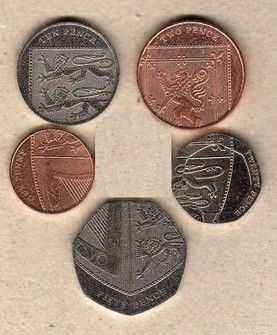- 《姬魔恋战纪》如何跟妹子谈场不分手的恋爱!
专业搬砖小能手
今天小编带你来梳理一下,国产galgame手机游戏《姬魔恋战纪》里的撩妹技巧,知己知彼才能百战百胜。刘备在主人公身边一直辅助主人公的女性,对主人公几乎有着无条件的信任。把丧失记忆的主人公当作上天派来的神使看待。对待主人公的态度非常温柔、宽容,但发现主人公偷懒后,会露出严厉的表情加以责备。兴趣是泡茶。在议事厅中泡茶给辛苦工作的主人公是她的一大乐趣之一。是一位温柔、善良的女性。攻略方式:遗迹冒险,多聊
- Python中 No module named pygame
程序员小铃铛
环境配置pygamepython开发语言
有时候运行Python程序,会出现如下错误Nomodulenamed'pygame'这个报错的意思是没有安装pygame,有的时候你可能会出现NomodulenamedXXXX这就是在说明你没有安装XXXX模块解决:1.进入cmd2.输入pipinstallxxxx表示安装这个模块我这里已经是安装了如果你出现Requirementalready表示的是你也安装了
- 学习C语言第十天(数组练习)
世辰辰辰
学习算法
一、三子棋game.h#define_CRT_SECURE_NO_WARNINGS#include#include#include#defineROW3#defineCOL3//初始化棋盘voidinitboard(charboard[ROW][COL],introw,intcol);//打印棋盘voiddispalyboard(charboard[ROW][COL],introw,intcol)
- Python——俄罗斯方块
星和月
pythonpygame开发语言
俄罗斯方块游戏是一款经典的益智游戏,通常使用编程语言Python来实现。下面是一个简单的俄罗斯方块游戏的示例代码:importpygameimportrandom#定义颜色BLACK=(0,0,0)WHITE=(255,255,255)RED=(255,0,0)GREEN=(0,255,0)BLUE=(0,0,255)CYAN=(0,255,255)MAGENTA=(255,0,255)YELLO
- python有趣游戏代码大全
uolo_python
游戏
一.贪吃蛇运行以下代码,将会弹出一个窗口显示贪吃蛇游戏。你可以使用箭头键控制贪吃蛇的移动。吃到食物后蛇的长度会增加,如果蛇触碰到边界或者自己则游戏结束。按下Q键退出游戏,按下C键重新开始游戏。importpygameimportrandom#初始化pygame.init()#设置游戏窗口window_width,window_height=640,480window=pygame.display.
- python编程一个最简单游戏,python最简单的游戏代码
gpt886
pygamepython开发语言人工智能
大家好,小编为大家解答python编程一个最简单游戏代码的问题。很多人还不知道python编程一个最简单游戏,现在让我们一起来看看吧!前言初识pygame:pie游戏pygame游戏库使得如下功能成为可能:绘制图形、获取用户输入、执行动画以及使用定时器让游戏按照稳定的帧速率运行。使用pygame库;以一定字体打印文本;使用循环来重复动作;绘制圆、矩形、线条和户型;创建pie游戏;【----帮助Py
- 由于篇幅限制,我无法为每种编程语言都提供一个完整的游戏商城代码,但我可以为你提供几种常见编程语言的示例代码片段或概念性指导。
NewmanEdwarda2
游戏
Python(使用Flask框架)yctsy.cnFlaskApp结构pythonfromflaskimportFlask,render_template,requestapp=Flask(name)假设有一个数据库或列表来存储商品games=[{“id”:1,“name”:“Game1”,“price”:9.99},#…其他游戏]@app.route(‘/’)defhome():returnre
- 由于生成一个完整的游戏商城代码涉及很多细节和复杂性,我无法在这里直接给出完整的代码示例。但是,我可以为你提供一个简化版的游戏商城核心功能的概念性代码,用几种不同的编程语言来展示。
NewmanEdwarda2
游戏
Python(伪代码)pythonclassGame:definit(self,name,price):tcjmbj.cnself.name=nameself.price=priceclassGameStore:definit(self):self.games=[]defadd_game(self,game):self.games.append(game)defbuy_game(self,game
- 「经济学人」Streaming-video wars
英语学习社
GameofphonesHBOwillleadAT&T’schallengetoNetflixTimeWarner’scrownjewelmustscaleupwhilemaintainingqualityINLATE2012,justbeforethereleaseof“HouseofCards”,TedSarandos,chiefcontentofficerofNetflix,declared
- 【解决】AnimationCurve 运行时丢失数据问题
野奔在山外的猫
解决指导Unity常见开发问题处理方案unity
开发平台:Unity2022编程平台:VisualStudio编程语言:CSharp 一、问题背景如上图所示的GracityComponent组件中,引用AnimationCurve作为可调属性。但在实际使用中出现数据丢失问题。大致为以下两种情况:运行时,配置的AnimationCurves出现丢失情况。非运行下,切换Selection.gameObject(选择游戏对象)时出现丢失情况。 二、源
- leetcode No518 零钱兑换Ⅱ java
短腿Cat
LeetCode刷题
题目给定不同面额的硬币和一个总金额。写出函数来计算可以凑成总金额的硬币组合数。假设每一种面额的硬币有无限个。示例1:输入:amount=5,coins=[1,2,5]输出:4解释:有四种方式可以凑成总金额:5=55=2+2+15=2+1+1+15=1+1+1+1+1示例2:输入:amount=3,coins=[2]输出:0解释:只用面额2的硬币不能凑成总金额3。示例3:输入:amount=10,c
- 第22天:如何使用OpenAI Gym和Universe构建AI游戏机器人
cumi7754
游戏人工智能pythonjava编程语言
byHariniJanakiraman通过哈里尼·贾纳基拉曼第22天:如何使用OpenAIGym和Universe构建AI游戏机器人(Day22:HowtobuildanAIGameBotusingOpenAIGymandUniverse)Let’sfaceit,AIiseverywhere.Aface-offbattleisunfoldingbetweenElonMuskandMarkZucke
- Python:100行完成属于你的第一个贪吃蛇
ling1s
python开发语言
目录综述制作前的分析任务分析对象分析编程思路分析代码块引用定义变量函数函数一:change(x,y)函数二:inside_map()函数三:inside_snake()函数四:deffruit_appear()函数五:gameLoop()蛇吃东西的机制死亡判定画图相关主函数完整程序总结综述turtle库是Python的一个图形绘制库,它可以通过简单的命令来控制一个小海龟在窗口上绘制图形。这个库的设
- pygame制作贪吃蛇
ling1s
pygamepython
目录综述制作前的分析面向对象和面向过程对象相关(地图,蛇,食物)地图和墙体的绘制蛇的绘制食物的绘制总结代码游戏的基础(gamebase.py)引用一些基础参数的设置颜色点类(方块元素)文本类游戏主体(snake.py)引用基础参数(其实可以加到gamebase里)一些函数食物生成画图方块圆形初始化函数游戏主体暂停功能死亡判断正常游戏操作按键监听相关吃东西相关移动和检测渲染和绘制完整代码gameba
- OpenAI gym: How to get complete list of ATARI environments
营赢盈英
AIaideeplearningopenaigymreinforcementlearning
题意:OpenAIGym:如何获取完整的ATARI环境列表问题背景:IhaveinstalledOpenAIgymandtheATARIenvironments.IknowthatIcanfindalltheATARIgamesinthedocumentationbutisthereawaytodothisinPython,withoutprintinganyotherenvironments(e
- 在Unity中测试并显示帧率
Jinx Boy
unity游戏引擎
usingUnityEngine;usingUnityEngine.UI;publicclassFPSShow:MonoBehaviour{publicTextfpsText;//UIText组件引用voidStart(){fpsText=GameObject.Find("FPSDisplay").GetComponent();//假设UIText对象的名字为"FPSDisplay"}voidUp
- 币市大跌 除了恐惧 我们还能做什么(一)
一望无际cd
本文由“币嗨Bihi内容合伙人计划”赞助,了解详情请加微信:jiny1732前两天看到A股市场大跌,击破2900点,自己还有点小确幸;现在就轮到币市了,最新的coinmarket总市值已经下跌到2500亿美元左右,24小时内下跌10%以上的币种比比皆是,EOS和部分币种下跌超过了15%。这样的下跌,就像一场森林大火,让置身于内的人不安,甚至恐惧。至少,我从小密圈看到,有的人开始抱怨和悔恨了,抱怨其
- 模拟new的实现
小泡_08f5
new运算符创建一个用户定义的对象类型的实例或具有构造函数的内置对象类型之一模拟new之前,看看new实现了哪些功能//Otaku御宅族,简称宅functionOtaku(name,age){this.name=name;this.age=age;this.habit='Games';}Otaku.prototype.strength=60;Otaku.prototype.sayYourName=
- Python小游戏——雷霆战机
星和月
pygamepython开发语言
importpygameimportrandom#初始化pygame.init()#定义游戏窗口大小window_width=800window_height=600#创建游戏窗口window=pygame.display.set_mode((window_width,window_height))pygame.display.set_caption("雷霆战机")#加载图片player_img=
- 【HarmonyOS NEXT】codelab汇总-应用服务
这货就是木子全呀
HarmonyOS示例harmonyos华为
1、游戏登录(基于CocosCreator引擎)介绍:1.什么是游戏服务?GameServiceKit(游戏服务)主要提供快速、低成本构建游戏基本能力与游戏场景优化服务,有效提升游戏开发效率,帮助您进行游戏运营。2.您将建立什么?在本次Codelab中,您将会把一个CocosCreator游戏发布成OpenHarmony游戏,且这个游戏具备联合登录功能。3.您将会学到什么?实现如何将一个Cocos
- 代码随想录训练营 Day38打卡 动态规划 part06 322. 零钱兑换 279. 完全平方数 139. 单词拆分
那一抹阳光多灿烂
力扣动态规划动态规划算法python力扣
代码随想录训练营Day38打卡动态规划part06一、力扣322.零钱兑换给你一个整数数组coins,表示不同面额的硬币;以及一个整数amount,表示总金额。计算并返回可以凑成总金额所需的最少的硬币个数。如果没有任何一种硬币组合能组成总金额,返回-1。你可以认为每种硬币的数量是无限的。示例:输入:coins=[1,2,5],amount=11输出:3解释:11=5+5+1题目中说每种硬币的数量是
- kotlin中Gson解析Json时对于泛型的应用
张子羽
安卓三分钟jsonkotlinandroid
Gosn解析Json我们都知道,在使用Gson解析json时,可以通过如下代码将json转为实体类valuser=Gson().fromJson(json,UserBean::class.java)实体类的定义而在开发过程中,我们也可能遇到这样的Json数据//一个登陆接口返回的数据{"data":{"admin":false,"chapterTops":[],"coinCount":10,"co
- 谷歌发布AI驱动实时游戏引擎:GameNGen的研究框架
花生糖@
AIGC学习资源人工智能游戏引擎
谷歌近日发布了名为GameNGen的AI驱动实时游戏引擎的研究框架,这标志着游戏开发领域迈入了一个全新的时代。GameNGen旨在通过先进的AI技术彻底改变游戏的开发和运行方式,代表着从传统手工编程游戏引擎向完全由AI驱动的游戏引擎的重大范式转移。本文将详细介绍GameNGen的核心功能、特色及其潜在影响。一、定位GameNGen是一个革命性的神经网络驱动的游戏引擎,它利用人工智能技术实现了游戏开
- The First项目报告:BlackCardCoin让数字资产多元化
TheFirst008
web3
现有的区块链技术存在吞吐量瓶颈、互操作性有限和次优共识机制等问题,导致效率低下,阻碍了真正全球化金融体系的建立。因此,迫切需要一种创新的区块链,能够容纳现代金融的复杂性,包括即时结算、强大的安全措施,以及支持迅速扩展的数字经济的框架。2024年,BlackCard推出一种特殊的加密货币信用卡,能够将加密货币无缝整合到日常金融交易中BlackCardCoin利用先进的区块链技术,在数字资产和传统银行
- 464. Can I Win
Nancyberry
DescriptionInthe"100game,"twoplayerstaketurnsadding,toarunningtotal,anyintegerfrom1..10.Theplayerwhofirstcausestherunningtotaltoreachorexceed100wins.Whatifwechangethegamesothatplayerscannotre-useinteg
- UVA 674 Coin Change(完全背包求解方案数)
沙雕.
背包问题DP
题目链接:https://vjudge.net/problem/UVA-674解题思路:情景:一定容量V的包,有n样物品,每样无数件,重量wi,价值vi,问你背包最多有多少种可以装满的不同方案?做法:①dp[j]表示当前只装前i件物品最大的价值②状态转移方程:dp[j]=(j>=w[i])?dp[j]+dp[j-w[i]]:dp[j];如果当前的背包不能装下第i件物品,那么就等于前i-1件dp[j
- HDU - 1398 完全背包问题求方案数
tran_sient
算法以及模板完全背包求方案数
题目描述:ProblemDescriptionPeopleinSilverlandusesquarecoins.Notonlytheyhavesquareshapesbutalsotheirvaluesaresquarenumbers.Coinswithvaluesofallsquarenumbersupto289(=17^2),i.e.,1-creditcoins,4-creditcoins,9
- 井字棋盘游戏
木啊木啊木
寒假学习笔记
问题描述:井字棋盘游戏规则:一共有三行三列的位置,在这九个位置中如果有其中一行或者一列是相同的则下该棋子的人获胜你的游戏对手是aipackagegame;publicclassMain{publicstaticvoidmain(String[]args){Playerplayer=newPlayer();Gamegame=newGame(player);while(true){game.initi
- python pygame教程_【Python】Pygame入门
weixin_39677419
pythonpygame教程
Pygame的历史Pygame是一个利用SDL库的写的游戏库,SDL呢,全名SimpleDirectMediaLayer,是一位叫做SamLantinga的大牛写的,据说他为了让Loki(致力于向Linux上移植Windows的游戏的一家大好人公司,可惜已经倒闭,唉好人不长命啊……)更有效的工作,创造了这个东东。SDL是用C写的,不过它也可以使用C++进行开发,当然还有很多其它的语言,Pygame
- Pygame ,一个强大的游戏创作引擎
李昕壑
游戏python
0.开篇废话(允许跳过)接下来,系列“游戏制作,但是使用Python,还能离线玩?干!”会为您介绍使用Python完成游戏创作的相关内容,但是,请注意:Python不能用于开发过度精细的3D游戏,如想尝试3D游戏,请移步:虚幻引擎5-UnrealEngine请认准系列名称,都在部分0.中,学习前请确认,以免造成内容不连续今天的内容为Pygame游戏库的简要介绍,后续更新的内容为Pygame优秀样例
- LeetCode[Math] - #66 Plus One
Cwind
javaLeetCode题解AlgorithmMath
原题链接:#66 Plus One
要求:
给定一个用数字数组表示的非负整数,如num1 = {1, 2, 3, 9}, num2 = {9, 9}等,给这个数加上1。
注意:
1. 数字的较高位存在数组的头上,即num1表示数字1239
2. 每一位(数组中的每个元素)的取值范围为0~9
难度:简单
分析:
题目比较简单,只须从数组
- JQuery中$.ajax()方法参数详解
AILIKES
JavaScriptjsonpjqueryAjaxjson
url: 要求为String类型的参数,(默认为当前页地址)发送请求的地址。
type: 要求为String类型的参数,请求方式(post或get)默认为get。注意其他http请求方法,例如put和 delete也可以使用,但仅部分浏览器支持。
timeout: 要求为Number类型的参数,设置请求超时时间(毫秒)。此设置将覆盖$.ajaxSetup()方法的全局
- JConsole & JVisualVM远程监视Webphere服务器JVM
Kai_Ge
JVisualVMJConsoleWebphere
JConsole是JDK里自带的一个工具,可以监测Java程序运行时所有对象的申请、释放等动作,将内存管理的所有信息进行统计、分析、可视化。我们可以根据这些信息判断程序是否有内存泄漏问题。
使用JConsole工具来分析WAS的JVM问题,需要进行相关的配置。
首先我们看WAS服务器端的配置.
1、登录was控制台https://10.4.119.18
- 自定义annotation
120153216
annotation
Java annotation 自定义注释@interface的用法 一、什么是注释
说起注释,得先提一提什么是元数据(metadata)。所谓元数据就是数据的数据。也就是说,元数据是描述数据的。就象数据表中的字段一样,每个字段描述了这个字段下的数据的含义。而J2SE5.0中提供的注释就是java源代码的元数据,也就是说注释是描述java源
- CentOS 5/6.X 使用 EPEL YUM源
2002wmj
centos
CentOS 6.X 安装使用EPEL YUM源1. 查看操作系统版本[root@node1 ~]# uname -a Linux node1.test.com 2.6.32-358.el6.x86_64 #1 SMP Fri Feb 22 00:31:26 UTC 2013 x86_64 x86_64 x86_64 GNU/Linux [root@node1 ~]#
- 在SQLSERVER中查找缺失和无用的索引SQL
357029540
SQL Server
--缺失的索引
SELECT avg_total_user_cost * avg_user_impact * ( user_scans + user_seeks ) AS PossibleImprovement ,
last_user_seek ,
- Spring3 MVC 笔记(二) —json+rest优化
7454103
Spring3 MVC
接上次的 spring mvc 注解的一些详细信息!
其实也是一些个人的学习笔记 呵呵!
- 替换“\”的时候报错Unexpected internal error near index 1 \ ^
adminjun
java“\替换”
发现还是有些东西没有刻子脑子里,,过段时间就没什么概念了,所以贴出来...以免再忘...
在拆分字符串时遇到通过 \ 来拆分,可是用所以想通过转义 \\ 来拆分的时候会报异常
public class Main {
/*
- POJ 1035 Spell checker(哈希表)
aijuans
暴力求解--哈希表
/*
题意:输入字典,然后输入单词,判断字典中是否出现过该单词,或者是否进行删除、添加、替换操作,如果是,则输出对应的字典中的单词
要求按照输入时候的排名输出
题解:建立两个哈希表。一个存储字典和输入字典中单词的排名,一个进行最后输出的判重
*/
#include <iostream>
//#define
using namespace std;
const int HASH =
- 通过原型实现javascript Array的去重、最大值和最小值
ayaoxinchao
JavaScriptarrayprototype
用原型函数(prototype)可以定义一些很方便的自定义函数,实现各种自定义功能。本次主要是实现了Array的去重、获取最大值和最小值。
实现代码如下:
<script type="text/javascript">
Array.prototype.unique = function() {
var a = {};
var le
- UIWebView实现https双向认证请求
bewithme
UIWebViewhttpsObjective-C
什么是HTTPS双向认证我已在先前的博文 ASIHTTPRequest实现https双向认证请求
中有讲述,不理解的读者可以先复习一下。本文是用UIWebView来实现对需要客户端证书验证的服务请求,网上有些文章中有涉及到此内容,但都只言片语,没有讲完全,更没有完整的代码,让人困扰不已。但是此知
- NoSQL数据库之Redis数据库管理(Redis高级应用之事务处理、持久化操作、pub_sub、虚拟内存)
bijian1013
redis数据库NoSQL
3.事务处理
Redis对事务的支持目前不比较简单。Redis只能保证一个client发起的事务中的命令可以连续的执行,而中间不会插入其他client的命令。当一个client在一个连接中发出multi命令时,这个连接会进入一个事务上下文,该连接后续的命令不会立即执行,而是先放到一个队列中,当执行exec命令时,redis会顺序的执行队列中
- 各数据库分页sql备忘
bingyingao
oraclesql分页
ORACLE
下面这个效率很低
SELECT * FROM ( SELECT A.*, ROWNUM RN FROM (SELECT * FROM IPAY_RCD_FS_RETURN order by id desc) A ) WHERE RN <20;
下面这个效率很高
SELECT A.*, ROWNUM RN FROM (SELECT * FROM IPAY_RCD_
- 【Scala七】Scala核心一:函数
bit1129
scala
1. 如果函数体只有一行代码,则可以不用写{},比如
def print(x: Int) = println(x)
一行上的多条语句用分号隔开,则只有第一句属于方法体,例如
def printWithValue(x: Int) : String= println(x); "ABC"
上面的代码报错,因为,printWithValue的方法
- 了解GHC的factorial编译过程
bookjovi
haskell
GHC相对其他主流语言的编译器或解释器还是比较复杂的,一部分原因是haskell本身的设计就不易于实现compiler,如lazy特性,static typed,类型推导等。
关于GHC的内部实现有篇文章说的挺好,这里,文中在RTS一节中详细说了haskell的concurrent实现,里面提到了green thread,如果熟悉Go语言的话就会发现,ghc的concurrent实现和Go有点类
- Java-Collections Framework学习与总结-LinkedHashMap
BrokenDreams
LinkedHashMap
前面总结了java.util.HashMap,了解了其内部由散列表实现,每个桶内是一个单向链表。那有没有双向链表的实现呢?双向链表的实现会具备什么特性呢?来看一下HashMap的一个子类——java.util.LinkedHashMap。
- 读《研磨设计模式》-代码笔记-抽象工厂模式-Abstract Factory
bylijinnan
abstract
声明: 本文只为方便我个人查阅和理解,详细的分析以及源代码请移步 原作者的博客http://chjavach.iteye.com/
package design.pattern;
/*
* Abstract Factory Pattern
* 抽象工厂模式的目的是:
* 通过在抽象工厂里面定义一组产品接口,方便地切换“产品簇”
* 这些接口是相关或者相依赖的
- 压暗面部高光
cherishLC
PS
方法一、压暗高光&重新着色
当皮肤很油又使用闪光灯时,很容易在面部形成高光区域。
下面讲一下我今天处理高光区域的心得:
皮肤可以分为纹理和色彩两个属性。其中纹理主要由亮度通道(Lab模式的L通道)决定,色彩则由a、b通道确定。
处理思路为在保持高光区域纹理的情况下,对高光区域着色。具体步骤为:降低高光区域的整体的亮度,再进行着色。
如果想简化步骤,可以只进行着色(参看下面的步骤1
- Java VisualVM监控远程JVM
crabdave
visualvm
Java VisualVM监控远程JVM
JDK1.6开始自带的VisualVM就是不错的监控工具.
这个工具就在JAVA_HOME\bin\目录下的jvisualvm.exe, 双击这个文件就能看到界面
通过JMX连接远程机器, 需要经过下面的配置:
1. 修改远程机器JDK配置文件 (我这里远程机器是linux).
- Saiku去掉登录模块
daizj
saiku登录olapBI
1、修改applicationContext-saiku-webapp.xml
<security:intercept-url pattern="/rest/**" access="IS_AUTHENTICATED_ANONYMOUSLY" />
<security:intercept-url pattern=&qu
- 浅析 Flex中的Focus
dsjt
htmlFlexFlash
关键字:focus、 setFocus、 IFocusManager、KeyboardEvent
焦点、设置焦点、获得焦点、键盘事件
一、无焦点的困扰——组件监听不到键盘事件
原因:只有获得焦点的组件(确切说是InteractiveObject)才能监听到键盘事件的目标阶段;键盘事件(flash.events.KeyboardEvent)参与冒泡阶段,所以焦点组件的父项(以及它爸
- Yii全局函数使用
dcj3sjt126com
yii
由于YII致力于完美的整合第三方库,它并没有定义任何全局函数。yii中的每一个应用都需要全类别和对象范围。例如,Yii::app()->user;Yii::app()->params['name'];等等。我们可以自行设定全局函数,使得代码看起来更加简洁易用。(原文地址)
我们可以保存在globals.php在protected目录下。然后,在入口脚本index.php的,我们包括在
- 设计模式之单例模式二(解决无序写入的问题)
come_for_dream
单例模式volatile乱序执行双重检验锁
在上篇文章中我们使用了双重检验锁的方式避免懒汉式单例模式下由于多线程造成的实例被多次创建的问题,但是因为由于JVM为了使得处理器内部的运算单元能充分利用,处理器可能会对输入代码进行乱序执行(Out Of Order Execute)优化,处理器会在计算之后将乱序执行的结果进行重组,保证该
- 程序员从初级到高级的蜕变
gcq511120594
框架工作PHPandroidhtml5
软件开发是一个奇怪的行业,市场远远供不应求。这是一个已经存在多年的问题,而且随着时间的流逝,愈演愈烈。
我们严重缺乏能够满足需求的人才。这个行业相当年轻。大多数软件项目是失败的。几乎所有的项目都会超出预算。我们解决问题的最佳指导方针可以归结为——“用一些通用方法去解决问题,当然这些方法常常不管用,于是,唯一能做的就是不断地尝试,逐个看看是否奏效”。
现在我们把淫浸代码时间超过3年的开发人员称为
- Reverse Linked List
hcx2013
list
Reverse a singly linked list.
/**
* Definition for singly-linked list.
* public class ListNode {
* int val;
* ListNode next;
* ListNode(int x) { val = x; }
* }
*/
p
- Spring4.1新特性——数据库集成测试
jinnianshilongnian
spring 4.1
目录
Spring4.1新特性——综述
Spring4.1新特性——Spring核心部分及其他
Spring4.1新特性——Spring缓存框架增强
Spring4.1新特性——异步调用和事件机制的异常处理
Spring4.1新特性——数据库集成测试脚本初始化
Spring4.1新特性——Spring MVC增强
Spring4.1新特性——页面自动化测试框架Spring MVC T
- C# Ajax上传图片同时生成微缩图(附Demo)
liyonghui160com
1.Ajax无刷新上传图片,详情请阅我的这篇文章。(jquery + c# ashx)
2.C#位图处理 System.Drawing。
3.最新demo支持IE7,IE8,Fir
- Java list三种遍历方法性能比较
pda158
java
从c/c++语言转向java开发,学习java语言list遍历的三种方法,顺便测试各种遍历方法的性能,测试方法为在ArrayList中插入1千万条记录,然后遍历ArrayList,发现了一个奇怪的现象,测试代码例如以下:
package com.hisense.tiger.list;
import java.util.ArrayList;
import java.util.Iterator;
- 300个涵盖IT各方面的免费资源(上)——商业与市场篇
shoothao
seo商业与市场IT资源免费资源
A.网站模板+logo+服务器主机+发票生成
HTML5 UP:响应式的HTML5和CSS3网站模板。
Bootswatch:免费的Bootstrap主题。
Templated:收集了845个免费的CSS和HTML5网站模板。
Wordpress.org|Wordpress.com:可免费创建你的新网站。
Strikingly:关注领域中免费无限的移动优
- localStorage、sessionStorage
uule
localStorage
W3School 例子
HTML5 提供了两种在客户端存储数据的新方法:
localStorage - 没有时间限制的数据存储
sessionStorage - 针对一个 session 的数据存储
之前,这些都是由 cookie 完成的。但是 cookie 不适合大量数据的存储,因为它们由每个对服务器的请求来传递,这使得 cookie 速度很慢而且效率也不

